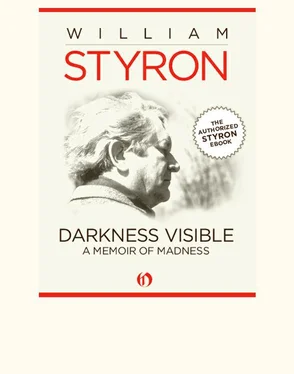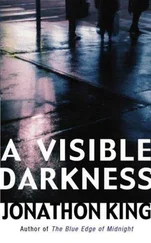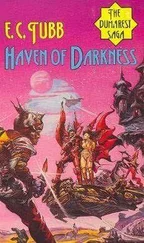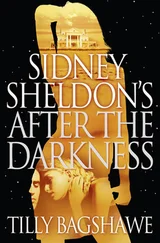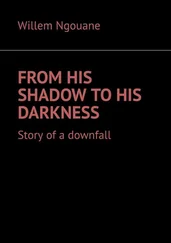William Styron - Darkness Visible
Здесь есть возможность читать онлайн «William Styron - Darkness Visible» весь текст электронной книги совершенно бесплатно (целиком полную версию без сокращений). В некоторых случаях можно слушать аудио, скачать через торрент в формате fb2 и присутствует краткое содержание. Город: New York, Год выпуска: 2010, ISBN: 2010, Издательство: Open Road Integrated Media, Жанр: Биографии и Мемуары, Психология, на английском языке. Описание произведения, (предисловие) а так же отзывы посетителей доступны на портале библиотеки ЛибКат.
- Название:Darkness Visible
- Автор:
- Издательство:Open Road Integrated Media
- Жанр:
- Год:2010
- Город:New York
- ISBN:978-1-936317-29-5
- Рейтинг книги:5 / 5. Голосов: 1
-
Избранное:Добавить в избранное
- Отзывы:
-
Ваша оценка:
- 100
- 1
- 2
- 3
- 4
- 5
Darkness Visible: краткое содержание, описание и аннотация
Предлагаем к чтению аннотацию, описание, краткое содержание или предисловие (зависит от того, что написал сам автор книги «Darkness Visible»). Если вы не нашли необходимую информацию о книге — напишите в комментариях, мы постараемся отыскать её.
Darkness Visible — читать онлайн бесплатно полную книгу (весь текст) целиком
Ниже представлен текст книги, разбитый по страницам. Система сохранения места последней прочитанной страницы, позволяет с удобством читать онлайн бесплатно книгу «Darkness Visible», без необходимости каждый раз заново искать на чём Вы остановились. Поставьте закладку, и сможете в любой момент перейти на страницу, на которой закончили чтение.
Интервал:
Закладка:
Madame del Duca was magnanimous in accepting my apology and the lunch went off without further strain, although I couldn’t completely rid myself of the suspicion, as we chatted somewhat stiffly, that my benefactress was still disturbed by my conduct and thought me a weird number. The lunch was a long one, and when it was over I felt myself entering the afternoon shadows with their encroaching anxiety and dread. A television crew from one of the national channels was waiting (I had forgotten about them, too), ready to take me to the newly opened Picasso Museum, where I was supposed to be filmed looking at the exhibits and exchanging comments with Rose. This turned out to be, as I knew it would, not a captivating promenade but a demanding struggle, a major ordeal. By the time we arrived at the museum, having dealt with heavy traffic, it was past four o’clock and my brain had begun to endure its familiar siege: panic and dislocation, and a sense that my thought processes were being engulfed by a toxic and unnameable tide that obliterated any enjoyable response to the living world. This is to say more specifically that instead of pleasure—certainly instead of the pleasure I should be having in this sumptuous showcase of bright genius—I was feeling in my mind a sensation close to, but indescribably different from, actual pain. This leads me to touch again on the elusive nature of such distress. That the word “indescribable” should present itself is not fortuitous, since it has to be emphasized that if the pain were readily describable most of the countless sufferers from this ancient affliction would have been able to confidently depict for their friends and loved ones (even their physicians) some of the actual dimensions of their torment, and perhaps elicit a comprehension that has been generally lacking; such incomprehension has usually been due not to a failure of sympathy but to the basic inability of healthy people to imagine a form of torment so alien to everyday experience. For myself, the pain is most closely connected to drowning or suffocation—but even these images are off the mark. William James, who battled depression for many years, gave up the search for an adequate portrayal, implying its near-impossibility when he wrote in The Varieties of Religious Experience: “It is a positive and active anguish, a sort of psychical neuralgia wholly unknown to normal life.”
The pain persisted during my museum tour and reached a crescendo in the next few hours when, back at the hotel, I fell onto the bed and lay gazing at the ceiling, nearly immobilized and in a trance of supreme discomfort. Rational thought was usually absent from my mind at such times, hence trance. I can think of no more apposite word for this state of being, a condition of helpless stupor in which cognition was replaced by that “positive and active anguish.” And one of the most unendurable aspects of such an interlude was the inability to sleep. It had been my custom of a near-lifetime, like that of vast numbers of people, to settle myself into a soothing nap in the late afternoon, but the disruption of normal sleep patterns is a notoriously devastating feature of depression; to the injurious sleeplessness with which I had been afflicted each night was added the insult of this afternoon insomnia, diminutive by comparison but all the more horrendous because it struck during the hours of the most intense misery. It had become clear that I would never be granted even a few minutes’ relief from my full-time exhaustion. I clearly recall thinking, as I lay there while Rose sat nearby reading, that my afternoons and evenings were becoming almost measurably worse, and that this episode was the worst to date. But I somehow managed to reassemble myself for dinner with—who else?—Françoise Gallimard, co-victim along with Simone del Duca of the frightful lunchtime contretemps. The night was blustery and raw, with a chill wet wind blowing down the avenues, and when Rose and I met Françoise and her son and a friend at La Lorraine, a glittering brasserie not far from L’Étoile, rain was descending from the heavens in torrents. Someone in the group, sensing my state of mind, apologized for the evil night, but I recall thinking that even if this were one of those warmly scented and passionate evenings for which Paris is celebrated I would respond like the zombie I had become. The weather of depression is unmodulated, its light a brownout.
And zombielike, halfway through the dinner, I lost the del Duca prize check for $25,000. Having tucked the check in the inside breast pocket of my jacket, I let my hand stray idly to that place and realized that it was gone. Did I “intend” to lose the money? Recently I had been deeply bothered that I was not deserving of the prize. I believe in the reality of the accidents we subconsciously perpetrate on ourselves, and so how easy it was for this loss to be not loss but a form of repudiation, offshoot of that self-loathing (depression’s premier badge) by which I was persuaded that I could not be worthy of the prize, that I was in fact not worthy of any of the recognition that had come my way in the past few years. Whatever the reason for its disappearance, the check was gone, and its loss dovetailed well with the other failures of the dinner: my failure to have an appetite for the grand plateau de fruits de mer placed before me, failure of even forced laughter and, at last, virtually total failure of speech. At this point the ferocious inwardness of the pain produced an immense distraction that prevented my articulating words beyond a hoarse murmur; I sensed myself turning walleyed, monosyllabic, and also I sensed my French friends becoming uneasily aware of my predicament. It was a scene from a bad operetta by now: all of us near the floor, searching for the vanished money. Just as I signaled that it was time to go, Françoise’s son discovered the check, which had somehow slipped out of my pocket and fluttered under an adjoining table, and we went forth into the rainy night. Then, while I was riding in the car, I thought of Albert Camus and Romain Gary.
II
WHEN I WAS A YOUNG WRITER THERE HAD BEEN A stage where Camus, almost more than any other contemporary literary figure, radically set the tone for my own view of life and history. I read his novel The Stranger somewhat later than I should have—I was in my early thirties—but after finishing it I received the stab of recognition that proceeds from reading the work of a writer who has wedded moral passion to a style of great beauty and whose unblinking vision is capable of frightening the soul to its marrow. The cosmic loneliness of Meursault, the hero of that novel, so haunted me that when I set out to write The Confessions of Nat Turner I was impelled to use Camus’s device of having the story flow from the point of view of a narrator isolated in his jail cell during the hours before his execution. For me there was a spiritual connection between Meursault’s frigid solitude and the plight of Nat Turner—his rebel predecessor in history by a hundred years—likewise condemned and abandoned by man and God. Camus’s essay “Reflections on the Guillotine” is a virtually unique document, freighted with terrible and fiery logic; it is difficult to conceive of the most vengeful supporter of the death penalty retaining the same attitude after exposure to scathing truths expressed with such ardor and precision. I know my thinking was forever altered by that work, not only turning me around completely, convincing me of the essential barbarism of capital punishment, but establishing substantial claims on my conscience in regard to matters of responsibility at large. Camus was a great cleanser of my intellect, ridding me of countless sluggish ideas, and through some of the most unsettling pessimism I had ever encountered causing me to be aroused anew by life’s enigmatic promise.
Читать дальшеИнтервал:
Закладка:
Похожие книги на «Darkness Visible»
Представляем Вашему вниманию похожие книги на «Darkness Visible» списком для выбора. Мы отобрали схожую по названию и смыслу литературу в надежде предоставить читателям больше вариантов отыскать новые, интересные, ещё непрочитанные произведения.
Обсуждение, отзывы о книге «Darkness Visible» и просто собственные мнения читателей. Оставьте ваши комментарии, напишите, что Вы думаете о произведении, его смысле или главных героях. Укажите что конкретно понравилось, а что нет, и почему Вы так считаете.
